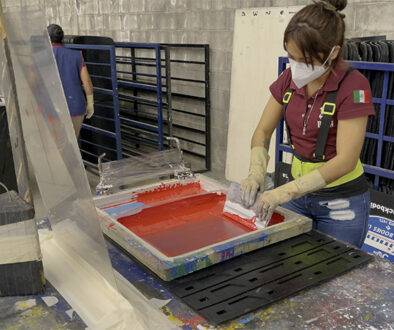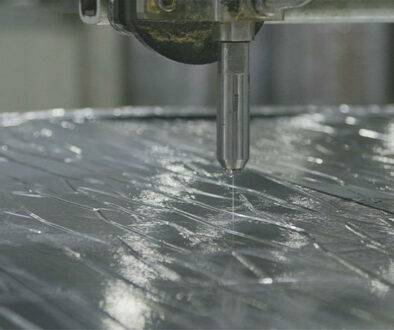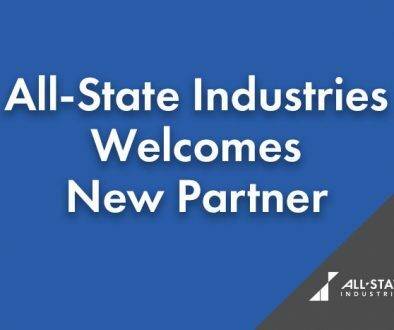Precision Die Cutting at a Whole ’Nother Level
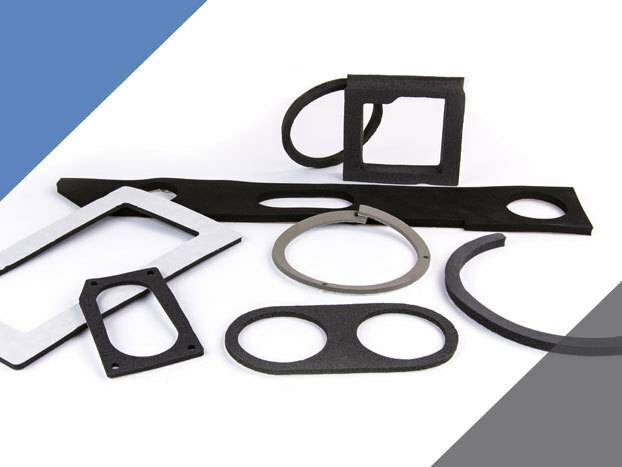
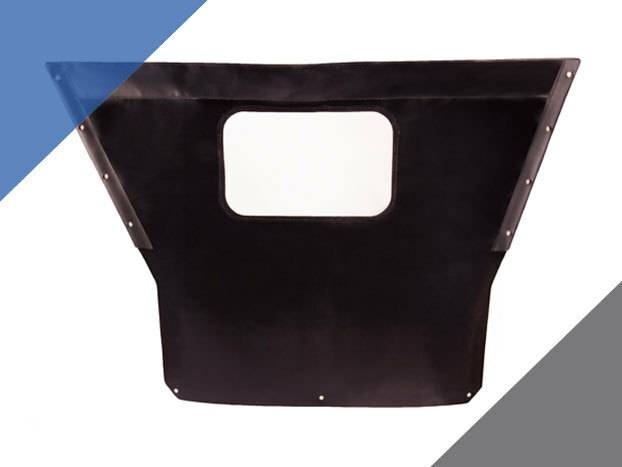
All-State Industries has been manufacturing precision die cut products for more than 50 years. And we’re not just talking about your run of the mill products that are common from the typical die cutter.
All-State currently die cuts products that are as small as a quarter, and some as large as 70”W x 120”L. Truth be told, All-State can die cut any material to any length, and to a width of up to 96.”
“When it comes to heavier, larger-scale components, we are one of if not the largest industrial die cutters in the country,” says Scott Pulver, CEO of All-State Industries. “A lot of other companies focus on producing very large quantities of things like gaskets and seals. We make those types of products, too. But our focus is on custom solutions for a variety of machinery and vehicles in a variety of industries.”
Going big requires big commitment
In addition to die cutting, All-State offers other manufacturing solutions: plastic machining and thermoforming, open cast urethane molding, molded masticated rubber, and thermal, acoustic and vibration control products. Offering that kind of diversity creates value for an OEM.
“All-State’s business was founded on die cutting,” Pulver says. “Now die cutting is opening the door to all of these other products our OEM customers also need. But die cutting is how it all started, and it continues to be a huge part of what we do.”
All-State offers quite a bit of diversity just within its die cutting operation. Over its 50-plus years in business, a lot of focus has been on elastomeric products. In reality, All-State can die cut any nonmetallic material, which includes different types of sheet rubber, plastics, cork, urethane, plied conveyor belting, silicone, and others.
All-State transforms all of those raw materials into a variety of finished products for OEMs in the agriculture, construction, mining, forestry, truck, bus, RV, military, and oil and gas industries, among others. Products range from gaskets and seals to mud flaps, floor mats, baffles, and a long list of custom products for specific applications.
“Sometimes an OEM needs 50 of something a year, and sometimes they want 500,000,” Pulver points out. “We can handle it all across our four die cutting facilities in Iowa, Illinois, Texas and Mexico.”
All-State invests heavily in materials to make sure it can meet the needs of its OEM customers. The company carries over 300 unique materials in stock from vendors around the globe. “I don’t think you’ll find another die cutter that carries anywhere near the amount of raw materials inventory we do,” Pulver says.
Because of All-State’s sheer size and volume, Pulver says the company always receives competitive pricing on materials, which helps keep costs down for both All-State and its customers. “We’ve also worked hard over the years to build strong long-term relationships with our suppliers—relationships based on loyalty and collaboration,” Pulver says.
All-State also works hard to provide added value to its customers. Based on customer needs, they’ll bend, weld, rivet, glue, sew or staple metal or plastic components to their own materials. All-State also offers laminating, kitting, line sequencing and JIT programs.
To maintain such a high level of die cutting capability, significant investments in infrastructure are needed. Most die cutters have an array of smaller-scale machinery to support the smaller types of products they specialize in. Since All-State’s focus is on larger-scale components, the company has continually invested in advanced die cutting equipment like clicker presses, beam presses, receding heads, automatic die cutting machines, water jet cutters, flash cutters, laminating equipment, belt slitters and more.
To deliver the best, most cost-effective solution for customers, Pulver says it’s essential to understand when certain types of die cutting equipment are a better choice than others. Factors like material type, gauge, durometer/hardness, size and quantity all factor in. Having a vast array of different equipment to choose from gives All-State their advantage to support the various opportunities that come their way.
Being able to make those types of decisions goes back to experience, of which All-State has more than half a century. Many of the company’s employees have been there for decades, too. As a matter of fact, All-State’s sales reps are commonly referred to as sales engineers because of their deep understanding of the die cutting process.
“It’s one thing to understand different materials and spec sheets,” Pulver says. “It’s another thing to understand the actual applications they’re going into. Because we’ve seen just about everything over the past 50 years, we have an ability to determine the best option, and at the best price and availability. And we rarely run into an application that’s completely foreign to us.”
To learn more about All-State’s die cutting solutions, or any other manufacturing solution the company offers, fill out the brief Contact Form.

